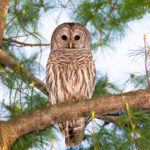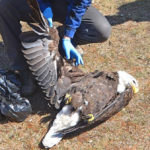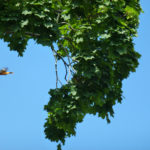
By Jeffrey North Eagles, owls, and hawks are dying. Of the 161 Massachusetts raptors tested at Tufts Wildlife Clinic in a study between 2006 and 2010, 86% had poison residues in their liver tissue. And according to the EPA, more than 10,000 kids are poisoned by toxic chemicals left around residences, restaurants, or public parks to poison rats. Take action Proven tactics to address the problem with minimal or no rodenticide use include Integrated Pest Management plans, engaging housing authorities, affecting retail and construction site practices, and a rat poison bylaw. And please support legislation currently before the House (HD [READ MORE]




